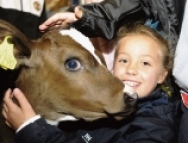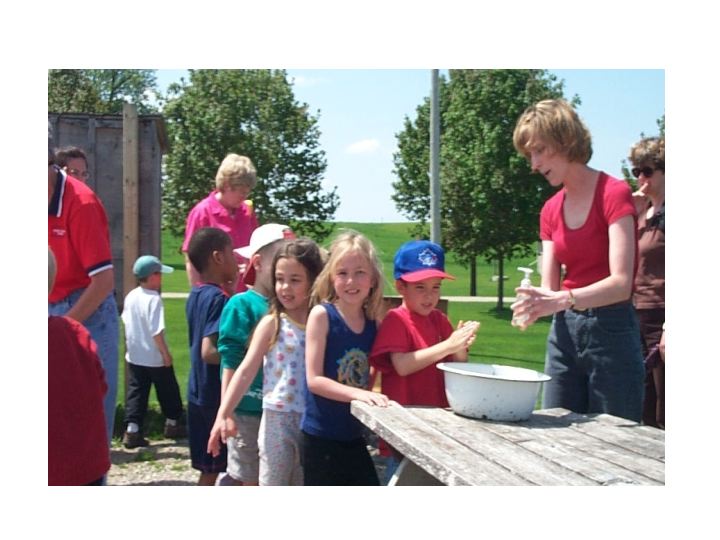Yesterday I wrote about a bunch of schoolkids in Carlisle , U.K. that have been stricken with cryptosporidium, apparently related to so called-educational visits to nearby farms.
 Teachers and school leaders said there were lots of precautions and lots of handwashing. So Shane Morris sent me a picture from the May 1, 2009 edition of the Cumberland News, (right) which documented the trip that apparently sickened the kids and included this charming picture, right, of cow-kid cuddling. Did she sanitize her cheek? And who knows what else went on.
Teachers and school leaders said there were lots of precautions and lots of handwashing. So Shane Morris sent me a picture from the May 1, 2009 edition of the Cumberland News, (right) which documented the trip that apparently sickened the kids and included this charming picture, right, of cow-kid cuddling. Did she sanitize her cheek? And who knows what else went on.
Scott Weese of the Worms and Germs Blog wrote this morning that a recent study by Pritchard et al in the Veterinary Record reports that in samples collected from various animals on 31 different farms in U.K., verotoxigenic E. coli, like O157, was found on 61% of premises. Presence of young cattle and, surprisingly, adult pigs were identified as risk factors for finding verotoxigenic E. coli at a location. Verotoxigenic E. coli were most commonly identified in cattle (29%). It wasn’t surprising that cattle, especially young cattle, were the most common carriers based on what we know about the bacterium, but there were impressively high rates of carriage by other species, including sheep (24%), donkeys (15%), pigs (14%), horses (12%) and goats (10%).
On most farms where verotoxigenic E. coli was found, the same strain was identified in different animal species, indicating that this bacterium can spread widely on such premises. This may be because different animal species in petting zoos are mixed together, as opposed to the situation on conventional farms.
(Weese notes: the premises were evaluated following suspicion that they could have been the source of infection of people, so it’s possible that the numbers reported are higher than for the overall population of such farms.)
Weese writes,
“The risk of people acquiring an infection from animals depends more on the degree of contact and the precautions adopted than the prevalence of infection in a particular species.”
Where does cow hugging and possible face-licking rank on the risk scale?

.jpg) The Eastern Health Board said other people who had contracted the infection in recent weeks had some contact with the farm.
The Eastern Health Board said other people who had contracted the infection in recent weeks had some contact with the farm. In the fall of 1998, I
In the fall of 1998, I